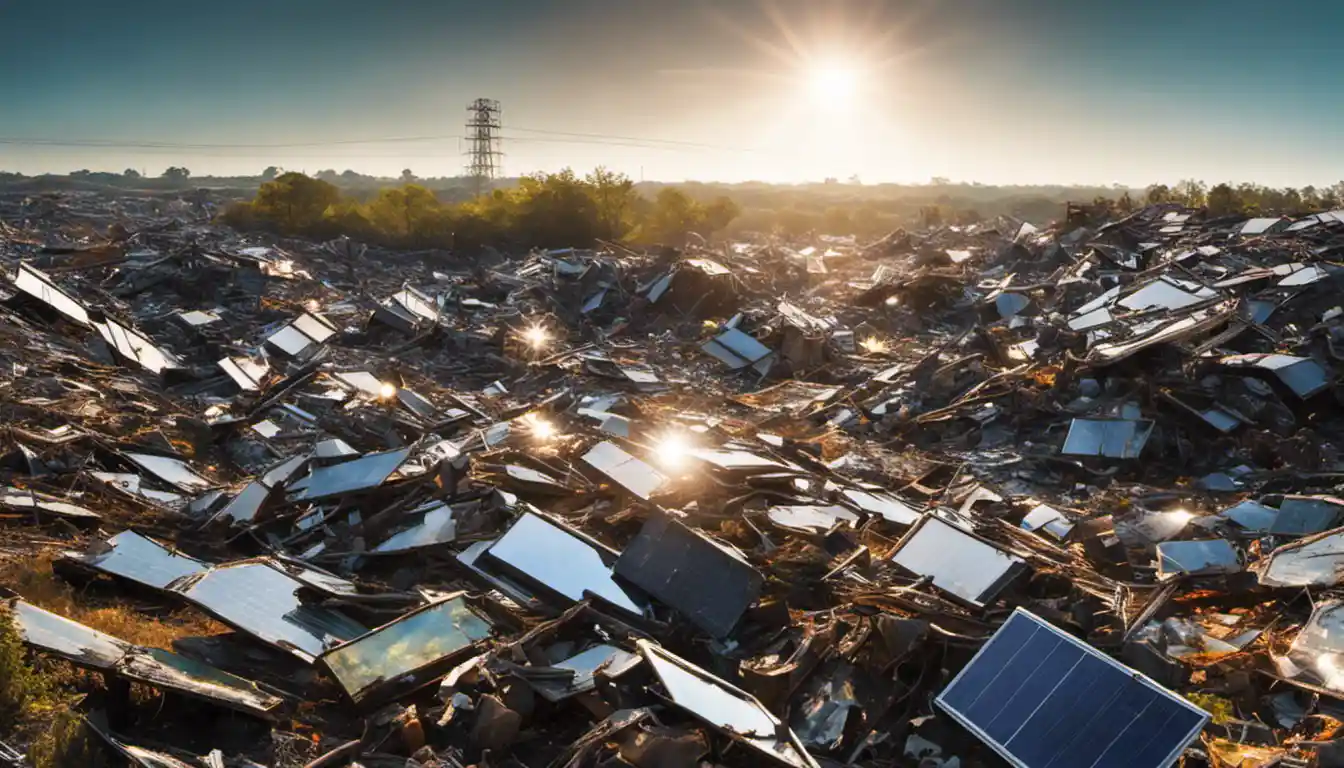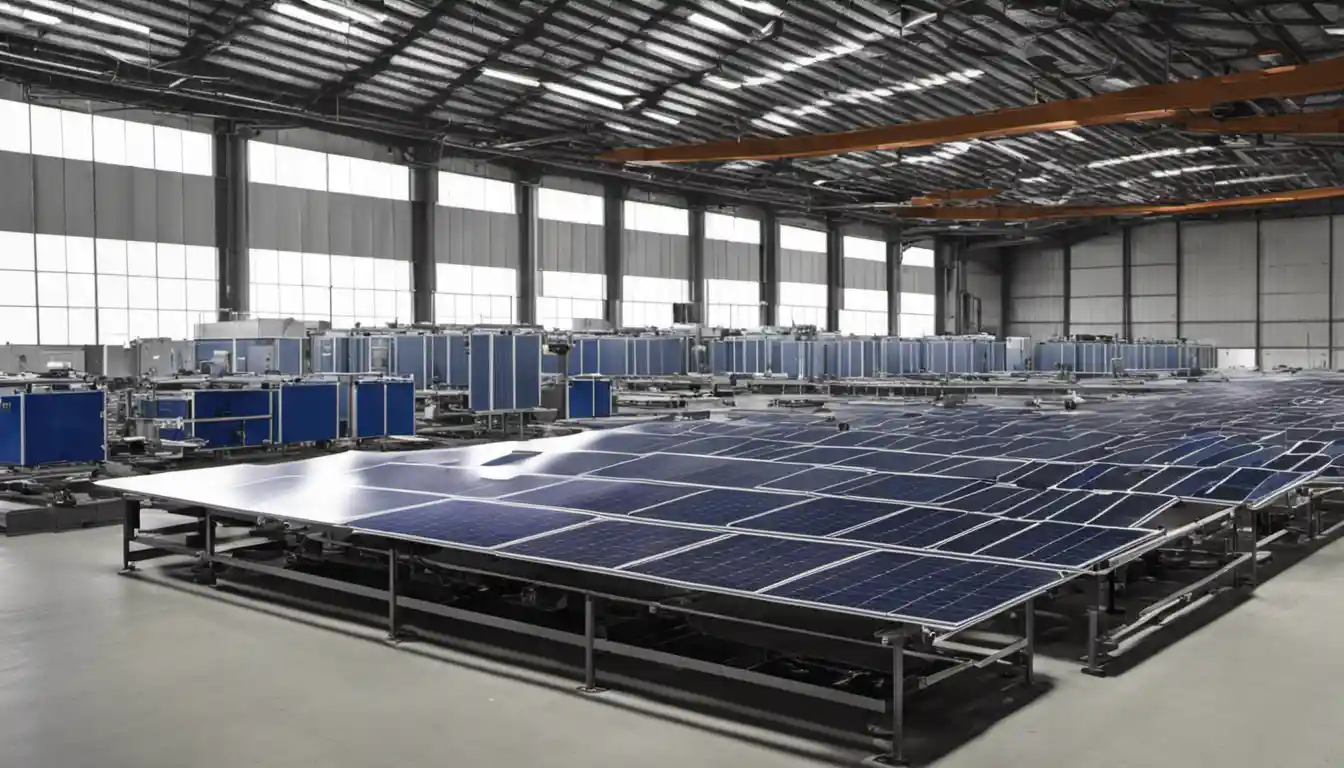Understanding the Solar Panel Life Cycle
Discarding old solar panels is a significant issue due to the presence of toxic metals like lead and cadmium, which can have harmful impacts on the environment. Current recycling methods are not entirely effective or widespread, and a significant amount of solar panel waste is expected as installations age, presenting a considerable disposal problem.
Duration of Solar Panels
Most solar panels have an estimated life span of 25-30 years. However, this doesn’t mean they become useless after this period. Instead, their efficiency in converting sunlight into electricity decreases. In some cases, panels can continue to function at reduced capacities for many years beyond their expected lifespan.
End of Life Disposal Problem
As aging solar panel installations complete their operational life, we’re left with a solar panel end of life disposal problem that’s often overlooked. Solar panels consist of materials that may prove harmful to the environment, warranting special attention for their disposal.
The Reality of Solar Panel Waste
The expected surge in the solar panel waste problem is attributable to the accelerated adoption of solar energy. As more people have turned to this renewable source of energy, there’s been a proportional increase in the accumulation of aging or defective solar panels.
Causes of Solar Panel Waste Problem
Solar panel waste is a byproduct of their increasing popularity. The primary causes include panels reaching the end of their life expectancy and the destruction of panels due to environmental factors or unforeseen circumstances like storms, hail, or mechanical errors during installation or maintenance.
Impacts of Solar Panel Waste on Environment
Old solar panels hold the risk of leakage of harmful substances like lead and cadmium if not properly managed. The release of these substances can drastically affect land and water resources, cause air pollution, and impact biodiversity.
Solar Panels and the Recycling Conundrum
The solar panel recycling problem adds another layer of complexity to the solar panel disposal problem. The idea of recycling sounds straightforward, but the reality is far from simple.
Are Solar Panels Recyclable?

The short answer is yes. The more comprehensive answer? Yes, but it’s difficult, energy-consuming, and not yet widespread enough to tackle the sheer volume of waste we’re witnessing.
Why Can’t Solar Panels be Recycled Easily?
The majority of a solar panel’s weight comprises glass and aluminum, both recyclable materials. However, the elements that give the panels their energy-producing potential, such as silicon cells and thin layers of lead, copper, and silver, are challenging and costly to extract. This complexity makes their recycling less economically viable.
The Energy-Intensive Solar Panel Recycling
It takes an enormous amount of heat to melt down silicon cells and segregate different elements. Beyond being energy-intensive, the approach also needs to handle chemicals and toxins cautiously to avoid further environmental problems.
Hazardous Materials within Solar Panels
Solar panels include toxic elements like lead and cadmium, which pose risks to both human health and the environment if allowed to leak out. Their segregation during the recycling process is a critical but challenging requirement.
Addressing Broken and Old Solar Panels
Options for Old Solar Panel Disposal
Firstly, take your old solar panels to a dedicated recycling facility. If recycling is not accessible or available, you should treat it as electronic waste and dispose of it at an authorized e-waste facility.
What to Do With Broken Solar Panels
Contacting the manufacturer is an excellent first step for dealing with broken solar panels. Often, warranties cover the damage, and the maker may replace or repair the panels. Alternatively, an e-waste facility can address disposal if repair is not an option.
Solar Panel Disposal in Landfills

The Impracticability of Solar Panel Landfills
Throwing old solar panels into landfills can lead to some serious environmental implications due to the potentially toxic substances within them.
Long-term Environmental Impact of Solar Panel Landfills
Negligent disposal can lead to leakage of hazardous compounds into the ground, contaminating soil and groundwater. With time, metals like lead and cadmium could cycle back into our food and water, thus posing a health risk.
The Role of Solar Panel Recycling Companies
There are a handful of dedicated solar panel recycling companies that are pioneering efforts to confront the solar panel disposal problem.
The Solar Panel Recycling Process
These innovative companies use techniques to extract valuable materials from old panels and repurpose them, ensuring hazardous materials are managed safely.
Identifying Solar Panel Recycling Companies Near You
Online resources can help identify nearby recyclers. It’s important to ensure that they follow safe practices and comply with local and national guidelines.
Sustainable Solutions for Solar Panel Disposal
Reducing Solar Panels Waste

As consumers, we can make a difference by maintaining and using our panels efficiently, thereby extending their lifespan. Manufacturers can contribute by designing solar panels with easier recyclability in mind.
Future Prospects for Solar Panel Recycling Efficiency
Researchers are actively seeking more efficient recycling processes to better manage the impending solar panel waste. These include methods that ‘renew’ the silicon in cells to be used again.
Understanding Solar Panels’ Carbon Footprint
Carbon Footprint: Solar Panel Manufacturing
While solar panels help reduce carbon footprints in their working lifetime, it’s important to bear in mind the emissions produced during their manufacturing and transport.
The Carbon Impact of Solar Panel Disposal
Having a robust recycling system is thus necessary to not just tackle waste but also to cut down on emissions associated with new manufacturing.
The Future of Solar Panels and Disposal Challenges
The Path Towards Improved Solar Panel Efficiency
Technological advancements aim to extend panel lifespan and increase efficiency, thereby delaying their end-of-life date.
Anticipated Disposal and Recycling Challenges
However, as we look towards a future with increased reliance on solar energy, we need to prepare for an inevitable increase in defective or old solar panels. We also need to have the processes and infrastructure ready to manage them effectively.
Learn more on how to properly manage your solar panels at the end of their lifecycle here.
So there we have it – a journey through the life of a solar panel, its expiry, and the pressing disposal problem we face today. As we grapple with the idea of balancing our shift to renewable energy with responsible waste management, it’s clear that the solar panel disposal problem requires urgent attention, broader discussions, and innovative solutions. Awareness, after all, is our first step towards responsible action.
Let’s remember, while disposing or recycling your old panels might seem like extra work, it’s the price we pay for harnessing the sun’s power without harming our environment. It’s our responsibility to ensure that our shift to green energy doesn’t inadvertently cause another environmental problem.



